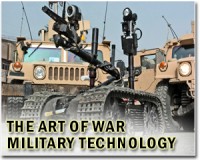| . |  |
. |
Wellington, New Zealand (UPI) Dec 18, 2009 Parliament has voted unanimously to ban cluster munitions, putting the country among a growing list of nations ratifying an anti-bomb convention. New Zealand's Cluster Munitions Prohibition Bill bans the use, development, production and stockpiling of cluster munitions in the country and by New Zealanders offshore. The bombs have been targeted my many pressure groups because of apparent indiscriminate maiming of people caused by the explosion of submunitions, or bomblets, over an area. The first cluster bombs uses operationally were the German butterfly bombs during World War II to attack military and civilian targets. Around 34 nations have made them in the past, but the United States, Russia and China are the major producers now. American slang for the bomb is firecracker or popcorn. New Zealand was one of the first countries to sign the convention banning cluster bombs. The country's Disarmament and Arms Control Minister Georgina te Heuheu said it was important New Zealand followed up on the convention. "The convention is a major step forward in addressing the harm to civilians caused by use of these unreliable and dangerous weapons," te Heuheu said. New Zealand played a leading role in the negotiation of the convention, including hosting a crucial meeting in Wellington in February 2008. "New Zealand has a profile far above our size or place in the world on disarmament issues and I am extremely proud to continue that tradition with this bill," te Heuheu said. The only exception to the ban is the limited import of cluster bombs so Defense Force personnel can be trained in how to dispose of them, a report on New Zealand television noted. The Asia-Pacific region stands to gain most from a total ban on cluster munitions, the Cluster Munition Coalition said at its conference in Bali, Indonesia, in November. "All countries in the region should show solidarity with their Afghan and Lao colleagues by following them on board the ban and joining the convention without delay," said Thomas Nash, coordinator of the coalition. A total of 103 governments worldwide have signed the convention since December 2008 when 90 nations signed the original document in Oslo, Norway. Of the nations who have signed the convention, 25 have ratified it. New Zealand now joins Japan and Laos from the Asia-Pacific region in ratifying the convention into national law. A country's government or parliament must ratify the treaty to give it legal standing so prosecutions can take place of people or organizations importing, using or making the devices. For the convention to enter into force and become binding international law six months later, 30 ratifications are needed, the coalition said in a statement. Within Asia-Pacific, 12 of the region's 40 states have signed the convention. They are Afghanistan, Australia, Cook Islands, Fiji, Indonesia, Japan, Laos, Nauru, New Zealand, Palau, the Philippines and Samoa. The coalition said that globally at least 77 countries stockpile cluster munitions, of which 12 are in Asia, including Australia, China, India, Indonesia, Japan, Mongolia, Pakistan, North Korea, South Korea, Singapore, Sri Lanka and Thailand. Australia has already destroyed its stocks, and Japan is in the process of doing so. The United States, which used cluster munitions on a massive scale during the Vietnam War, has not signed the convention. The convention has been reducing the export market for the bombs. Even the United States -- still a major producer -- has been considering a move toward at least making it difficult to sell the devices overseas. Under new rules embedded in a budget bill last March, to be allowed for export all air and artillery-deployed weapons that scatter hundreds of bomblets must have a self-destruct failure rate of less than 1 percent. Few of the U.S.-made cluster bombs meet this, according to a report in the Guardian newspaper in London at the time. Share This Article With Planet Earth
Related Links The latest in Military Technology for the 21st century at SpaceWar.com
 S. Korea considers U.S. MRAPs
S. Korea considers U.S. MRAPsSeoul (UPI) Dec 15, 2009 South Korea is in talks with the United States for plans to rent or buy 10 mine-resistant, ambush-protected vehicles. "A final decision will be made as late as next month," Lt. Gen. Jang Kwang-il, the deputy minister for policy, told reporters at a news conference. The announcement was made as South Korea vowed to press ahead with plans to redeploy combat forces in Afghanistan ... read more |
|
| The content herein, unless otherwise known to be public domain, are Copyright 1995-2009 - SpaceDaily. AFP and UPI Wire Stories are copyright Agence France-Presse and United Press International. ESA Portal Reports are copyright European Space Agency. All NASA sourced material is public domain. Additional copyrights may apply in whole or part to other bona fide parties. Advertising does not imply endorsement,agreement or approval of any opinions, statements or information provided by SpaceDaily on any Web page published or hosted by SpaceDaily. Privacy Statement |